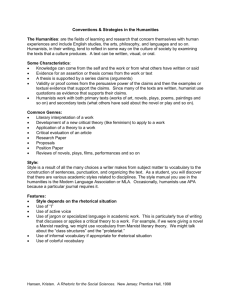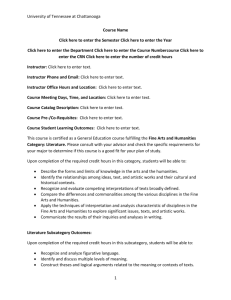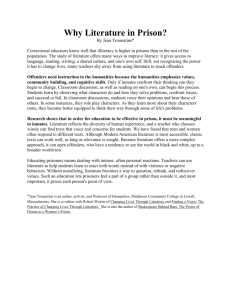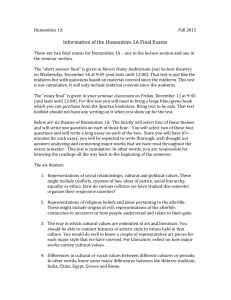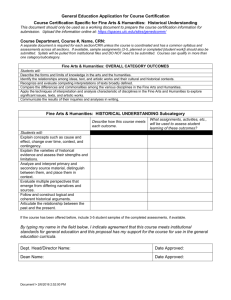Draft definition of Digital humanities
advertisement
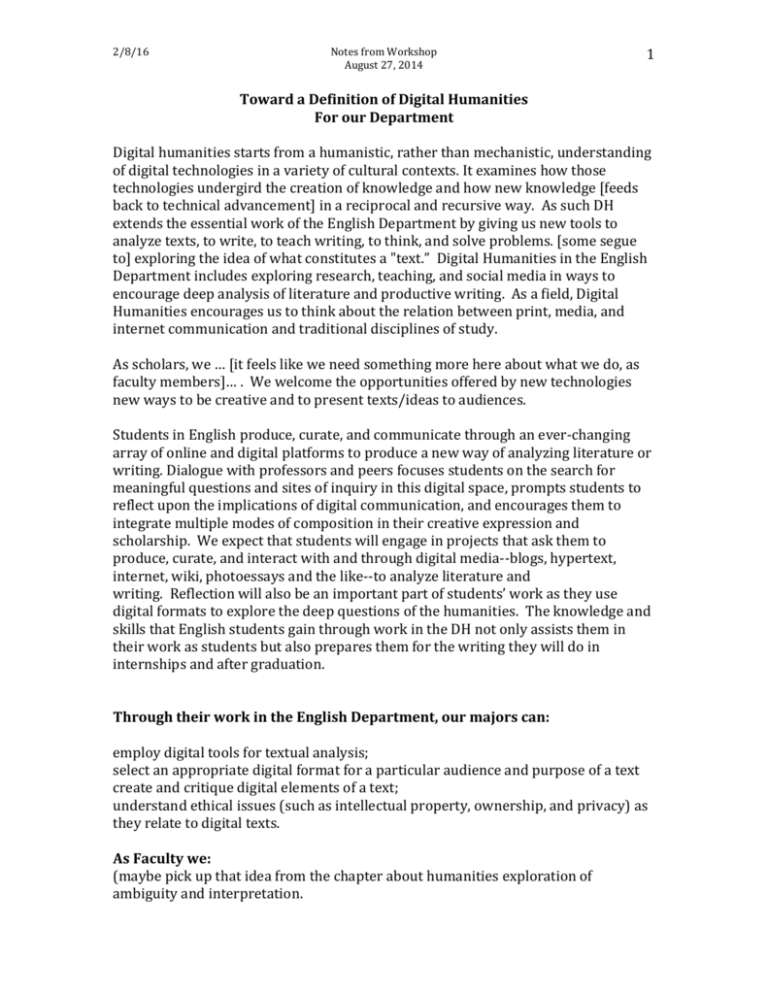
2/8/16 Notes from Workshop August 27, 2014 1 Toward a Definition of Digital Humanities For our Department Digital humanities starts from a humanistic, rather than mechanistic, understanding of digital technologies in a variety of cultural contexts. It examines how those technologies undergird the creation of knowledge and how new knowledge [feeds back to technical advancement] in a reciprocal and recursive way. As such DH extends the essential work of the English Department by giving us new tools to analyze texts, to write, to teach writing, to think, and solve problems. [some segue to] exploring the idea of what constitutes a "text.” Digital Humanities in the English Department includes exploring research, teaching, and social media in ways to encourage deep analysis of literature and productive writing. As a field, Digital Humanities encourages us to think about the relation between print, media, and internet communication and traditional disciplines of study. As scholars, we … [it feels like we need something more here about what we do, as faculty members]… . We welcome the opportunities offered by new technologies new ways to be creative and to present texts/ideas to audiences. Students in English produce, curate, and communicate through an ever-changing array of online and digital platforms to produce a new way of analyzing literature or writing. Dialogue with professors and peers focuses students on the search for meaningful questions and sites of inquiry in this digital space, prompts students to reflect upon the implications of digital communication, and encourages them to integrate multiple modes of composition in their creative expression and scholarship. We expect that students will engage in projects that ask them to produce, curate, and interact with and through digital media--blogs, hypertext, internet, wiki, photoessays and the like--to analyze literature and writing. Reflection will also be an important part of students’ work as they use digital formats to explore the deep questions of the humanities. The knowledge and skills that English students gain through work in the DH not only assists them in their work as students but also prepares them for the writing they will do in internships and after graduation. Through their work in the English Department, our majors can: employ digital tools for textual analysis; select an appropriate digital format for a particular audience and purpose of a text create and critique digital elements of a text; understand ethical issues (such as intellectual property, ownership, and privacy) as they relate to digital texts. As Faculty we: (maybe pick up that idea from the chapter about humanities exploration of ambiguity and interpretation. 2/8/16 Notes from Workshop August 27, 2014 2 Accessibility: The use of DH tools in faculty research can make texts accessible and available that were not before. That opens up new ways to involve students in the actual presenting and editing of texts. (It is really important that work with digitally reproduced archival material enables students to understand and work with the original texts and the process of transforming those texts for readers: suddenly scholarship and teaching become more closely connected. DH is often, but not necessarily, collaborative. DH is frequently interdisciplinary DH includes use of powerful digital tools to analyze corpus (corpora?) of texts. I didn’t know where to put these suggestions: DH is the intentional use and critique of technologies for teaching learning and scholarship. (then narrow to English) Crossing boundaries, Risk and technology.
